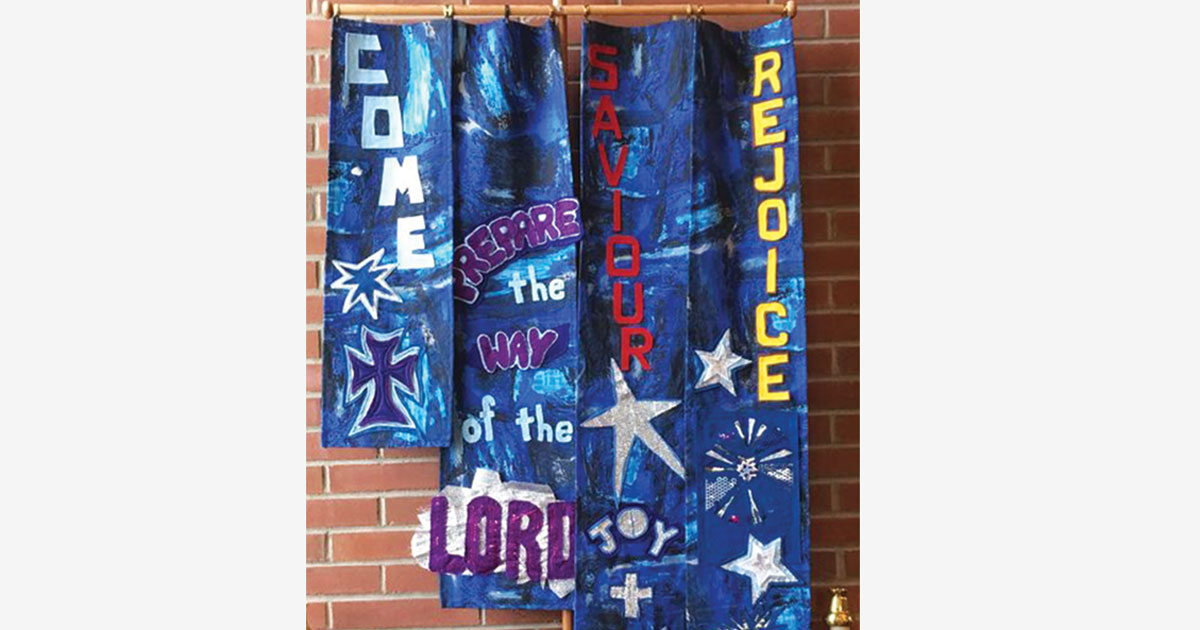One thing I very much appreciate about the liturgical calendar is the way it leads our attention — the different seasons pointing us to attend to different aspects of the faith. The lengthy season of Epiphany this year affords us the opportunity to trace the light of Christ going out into all the world!
One of the striking aspects of Epiphany is the way it highlights the universal in a particularly dynamic way: the Magi — thought to be Zoroastrians — arrive from afar, following the light of a star that is both local and global. The Magi migrate in order to trace the light to its source. All the while, that same light continues to shine outward, into all the world. The light crosses religious boundaries, and yet remains centred at the same time. The light shines broadly (generally) but it shines *from* the particular person of Jesus the Christ. This seems to me to lead the Christian imagination to look for the light of Christ wherever it may be found, but also always to look for that light *as* the light of Christ. And as we do, to prayerfully consider our own time and place in light of that light.
With an eye to Epiphany, two of those matters have drawn my attention in recent days:
First, I encountered a fascinating article about ‘invasive species’ resulting from climate change. Re- ports of the movement of species have started to become familiar: from the ‘murder hornets’ now appearing to the detriment of honeybees and bee keepers in southwestern BC, to less alarm- ing changes such as taller shrubs in the arctic, which in turn draw moose further north as they graze.
In an article titled “It’s time to stop demonizing ‘invasive’ species” [Vox, 28 Nov 2021; author: Marinam Bolotnikova: https://www.vox.com/down-to- earth/22796160/invasive-species-climate-change-range-shifting], Marina Bolotnikova explores the use of the term ‘invasive species’ as this has informed both the public imagination as well as conservation and environmental policy. Bolotnikova highlights that “a growing community of scientists and environmental philosophers now question whether a concept defined by a species’ geographic origin can capture the ethical and ecological complexities of life on a rapidly changing planet.” If everything is constantly in flux, accelerated by human-caused climate change itself, and if everything is interconnected, how can the resultant migrations simply be deemed ‘invasive’?
Second, the work of the philosopher Slavoj Žižek has explored the refugee crises of Europe in recent years, particularly with an eye to the tense social-psychology this has raised in a variety of nations on whether and how to offer hospitality [*Against the Double Blackmail: Refugees, Terror and Other Troubles with the Neighbours*, Penguin Random House UK, 2016]. Žižek argues that basing hospitality in compassion toward another’s suffering alone will not be sufficient because neighbours — whether new or old — will always generate friction: frictions can always arise “when the Neighbour comes too close,” fuelling the possibility of “an aggressive reaction aimed at getting rid of this disturbing intruder” (74). Žižek appeals to a core ethical duty: “we cannot not [offer welcome] if we want to remain decent people”; in the end there is no other more substantial reason to offer welcome than that this must be done (82).
In both of the above, ethical reflection on movement and migration in the face of upheaval and change turns on the language we choose to use, and quite simply on the way we go about seeing and characterizing both human and non-human creatures in that mix. Complexity abounds, and yet as Christians in Epiphany we are recalled to the light of Christ amongst us as a core simplicity. That light emanates from our own root story: the Christmas story unfolds in the midst of migratory disruption (Mary and Joseph must travel to Bethlehem to be registered), and the Magi travel from afar to trace the light of the star, which simultaneously shines forth into all the world.
In a recent review of the purpose and practice of the Diocesan Refugee Sponsorship Program, led by the Rev. Canon Nick Pang and presented to Diocesan Council last fall, we were reminded of the heart of biblical hospitality from two biblical texts: “You shall treat the stranger who resides with you as one born among you. You shall love that one as yourself ” (Leviticus 19:34); and “Do not forget to show hospitality to strangers, for by so doing some have shown hospitality to angels without knowing it” (Hebrews 13:2).
In Epiphany, we are reminded that we travel by the light of Christ in the midst of unknowing and uncertainty, but grounded by a faith that is rooted in a gracious hospitality going out into all the world and toward all creatures: “God here among us, light in the midst of us, bring us to light and life,” we respond as “we break the bread of life, and that life is the light of the world” (BAS 213).


